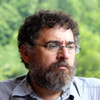Will there be early elections in Turkey?
The new source of debate in Turkey is not whether the government would fall with elections; rather, it is whether the opposition alliance will endure. Instead of merely discussing the possibility of early elections, the opposition should push for the holding of actual elections.
For quite some time now, every year is regarded as “the year of elections” in Turkey. While there might not be any elections at all, the word is ever present. Past elections, upcoming elections or the mere possibility of elections, the election system and political alliances are sources of constant discussion. It is impossible to have a couple of months with an election-free agenda in this country. Currently, people are betting on the prospect on “early elections.”
After Hagia Sophia was converted into a mosque, pundits raised the question of whether this was the sign of early elections to come. The same applies to the rising tensions in the Eastern Mediterranean and the government’s recent discovery of natural gas reserves. And after a new security department was established and a TV channel anchor resigned, we again interpreted those events as preparations for the holding of early elections.
The public – most of which now supports the opposition – has had too many past experiences to act with such suspicion. It is not far-fetched to believe that the government is seeking an advantageous occasion to catch its opponents off-guard and immediately hold elections. Hence, it is only natural that political scientists and commentators would review their data and put forward their analysis on the matter.
This constant expectation of elections to come has to do with the nature of the ruling Justice and Development Party (AKP). As academics such as Yunus Sözen have pointed out as early as 2008, the AKP and its leader Recep Tayyip Erdoğan embraced a tactic of “authority with elections.” After their voting results peaked in 2011, elections became a strong pillar of this approach.
What is more, after the ruling party was defeated in June 2015, elections were weaponized. The despotism or artificial atmosphere of competition created by elections not only further facilitates the holding of elections; it also leads to an addiction for elections on the part of the ruling party. Elections held through unequal competition allow the ruling party to renew its power and legitimacy. As a result, competitive authoritarian systems - those that hold elections, that is - indulge in frequent elections, and especially the prospect of them.
Regimes that turn elections – held in an unbalanced manner and through unequal means – into competition arenas are referred to as “competitive authoritarian” systems. Such regimes base their domination on their electoral victories. In this system, elections do not serve as tests through which citizens hold their governments accountable. Instead, elections are an arena the ruling party uses to beat its opponents. It is about winning or crushing, not evaluating. Besides, the ruling party believes the winner takes it all. Hence, an election never represents a beginning, but rather a finale.
In 2015, the ruling party formed an alliance with the far-right Nationalist Movement Party (MHP). With its newly acquired nationalist base, the AKP deemed “competition” as unnecessary. Yet, in the 2017 presidential referendum and, later, in the 2019 local elections, the AKP realized its alliance with MHP did not constitute a guarantee, and that in fact, it could prove perilous. For the past year or so, the government has attempted to come up with alternative sources of legitimacy beyond election results.
The government bloc has sought to widen the consolidation of its support base beyond voting support. First, with their “local and national” rhetoric, they define the opposition as a “national security issue.” Their aim is to depict their continuity as a necessity that transcends the will of the electorate. Second, they have begun launching attacks to solidify their power. Hence, elections are no longer a concern for the government bloc, only for the opposition.
Besides, it appears that the government uses the topic of elections to control the agenda, by denying the prospect of elections yet making everyone talk about it.
Up until recently, the prospect of an early election was part of the opposition’s discourse, which claimed that the collapse of the government would be imminent in if such elections were held. For some time, they even regarded it as an attempt from the government to exert pressure on them. Yet at present, they are unable to see that the pressure has been turned against them.
The new source of debate is not whether the government would fall with elections; rather, it is whether the opposition alliance will endure. Instead of focusing on the prospect of early elections, the opposition should be discussing the implementation of new policies. Moreover, instead of merely discussing their possibility, the opposition should push for the holding of actual elections.

